
In a world where information is abundant and attention spans are short, it's crucial to master the art of effective content research. Whether you're creating content for a brand, blog, or personal project, thorough content research sets the foundation for informative and persuasive writing.
In this article, we will delve into the importance of content research and provide you with actionable tips to enhance your research process.
True to SEOptimer fashion, we’ll also share some interesting insights from digital marketers on how they do content research in order to maximize the effectiveness of their marketing efforts.
Marketers Featured in This Post
We’d like to thank the following marketers and digital agency founders for sharing their insights and content research tips:
- Dmitriy Shelepin, CEO & Founders @ Miromind, Canada
- Darren Graham, Director @ 408 Media Group, United Kingdom
- Janis Thies, Founder @ SEOlutions, Germany
- Michael Giannulis, CEO @ Lead Engine Labs, United States
- Jayden Ooi, Managing Director @ NightOwl SEO, Singapore

What is Content Research?
Content research is the process of gathering and analyzing information to create high-quality, valuable, and relevant content. It involves exploring various sources such as articles, books, interviews, and industry reports to gain insights and knowledge about a specific topic or niche.
The goal of content research is to ensure that the content you create is accurate, credible, and tailored to meet the needs and interests of your target audience.
Content research is a cornerstone for compelling marketing.
Michael Giannulis, Lead Engine Labs
Why is Content Research Important for SEO?
Content research plays a pivotal role in creating high-quality, engaging, and effective content for SEO. It goes beyond simply putting words on a page.
Here are several key reasons why conducting thorough content research is crucial before diving into writing:
Optimizing for Search Engines

Image source: Reliablesoft
Content research helps you identify the right keywords, search terms, and phrases that will improve your content's visibility in search engine rankings.
By incorporating these keywords strategically, you can drive organic traffic to your content.
Identifying Relevant Topics
Content research helps you identify trending topics, industry news, and popular keywords related to your niche. By aligning your content with these topics, you can ensure its relevance and capture the attention of your audience.
Providing Accurate and Reliable Information
Researching your content ensures that the information you present is accurate, reliable, and up-to-date. It adds credibility to your content and establishes you as a trustworthy source of information.
Discovering Unique Angles and Perspectives
Through research, you can uncover unique angles, perspectives, and insights related to your topic. This allows you to provide valuable and original content that stands out from the competition.
Content research is not just about what to write, but how to write it better than anyone else.
- Michael Giannulis, Lead Engine Labs
Avoiding Plagiarism and Duplication
Researching ensures that your content is original and avoids plagiarism or duplication of existing content. It helps you create unique, valuable, and fresh content that adds value to your audience.
Building Authority and Expertise
In-depth research enables you to develop a deep understanding of your industry, niche, or subject matter.
This knowledge allows you to position yourself as an authority and expert in your field, fostering trust and credibility with your audience.
With the sharp rise in the amount of AI-generated content, marketers need to find ways to differentiate their content from competitors.
One way to achieve this is by building your brand's authority and reputation in the eyes of readers and Google, also commonly known as improving your site's E-E-A-T score.
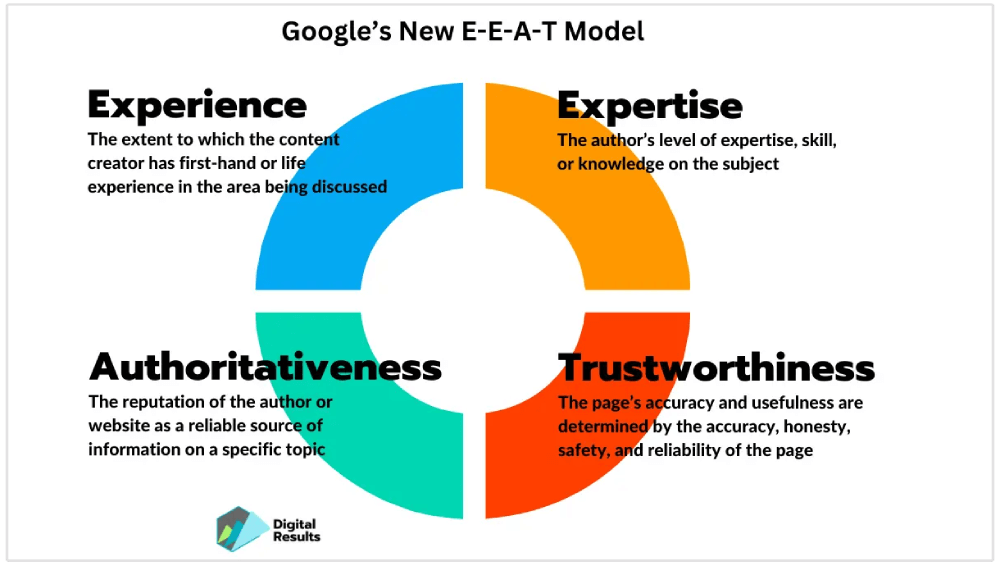
Image source: Digital Results
By conducting thorough content research, you lay the foundation for creating valuable, relevant, and compelling content that meets the needs of your audience, drives engagement, and establishes your brand's authority.
Next, let's explore some effective strategies for conducting content research to ensure the success of your content creation process.
How to do Content Research for SEO
Now, let's go through effective strategies to conduct comprehensive content research, to ensure your content is informative, engaging, and resonates with your target audience.
Truly Understand Your Market and Industry
The first step in any content research exercise is to gain a deep understanding of your market and industry. This understanding allows you to align your content with the needs, preferences, and pain points of your target audience.
Here's why this step is important and some effective ways to accomplish it:
Tailoring Content to Audience Needs
Understanding your market and industry helps you identify your target audience's specific needs and expectations.
By tailoring your content to address these needs, you can create valuable and relevant content that resonates with your audience.
Identifying Trends and Opportunities
Staying updated on industry trends and market dynamics allows you to spot emerging opportunities. By researching industry reports, competitor analysis, and consumer insights, you can uncover new trends, demands, and gaps in the market.
You can also make use of tools such as Google Trends or Exploding Topics to find and explore the topics that are picking up.
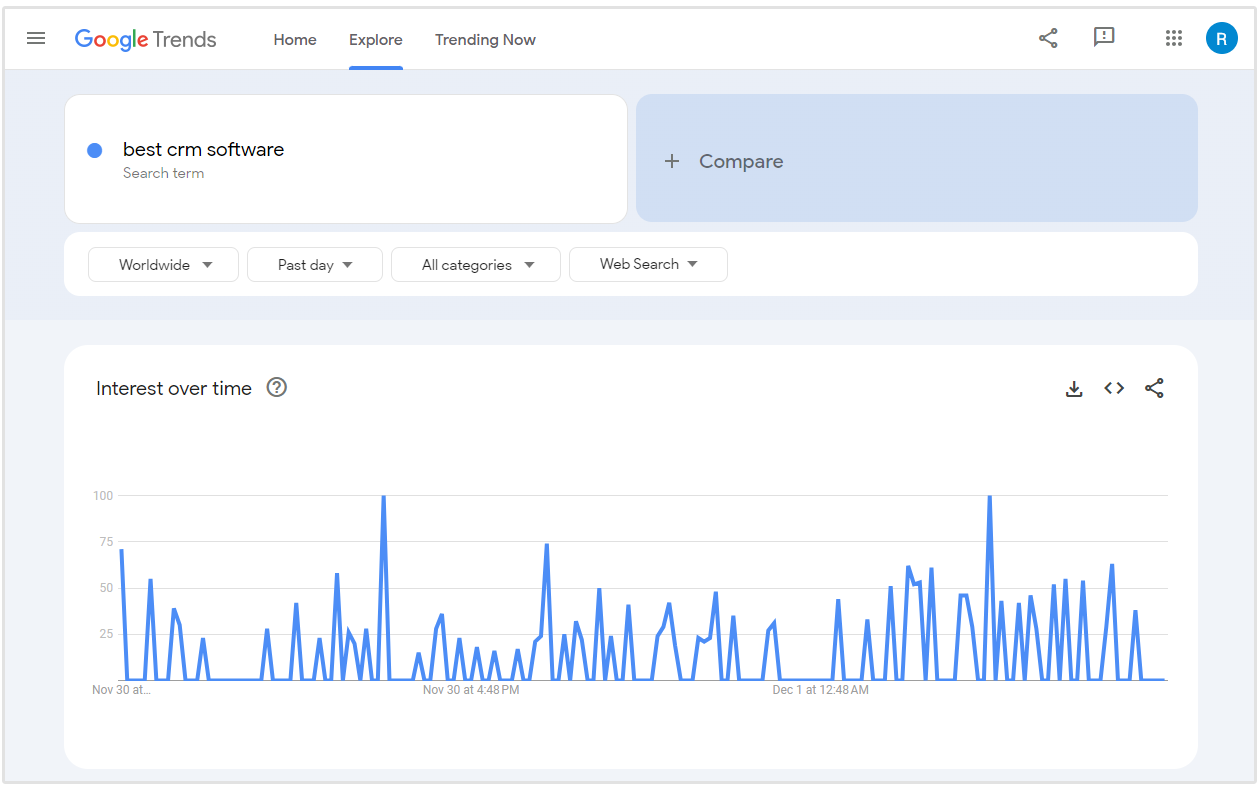
This knowledge enables you to create timely and impactful content that addresses current trends and fills market voids.
Analyzing Competitors
Studying your competitors' content strategies provides valuable insights into what works and what doesn't in your industry.
Analyze their content formats, topics, tone of voice, and engagement levels. This analysis will help you identify gaps in their content offerings, allowing you to position your own content as unique and distinct.
Conducting Audience Surveys and Interviews
Engaging directly with your target audience through surveys and interviews can provide invaluable insights. Ask questions about their preferences, challenges, and interests.
This qualitative research gives you firsthand information and helps you refine your content approach based on real audience feedback.
Monitoring Social Media Conversations
Social media platforms are treasure troves of information about your market and industry.
Monitor relevant hashtags, industry-specific groups, and discussions to understand what topics are currently trending. This will give you a sense of what your audience is talking about, allowing you to join the conversation and create content that aligns with their interests.
BuzzSumo is an excellent content discovery and social media monitoring tool to find content ideas. You can use it to find the most popular topics on the internet and to generate content ideas.
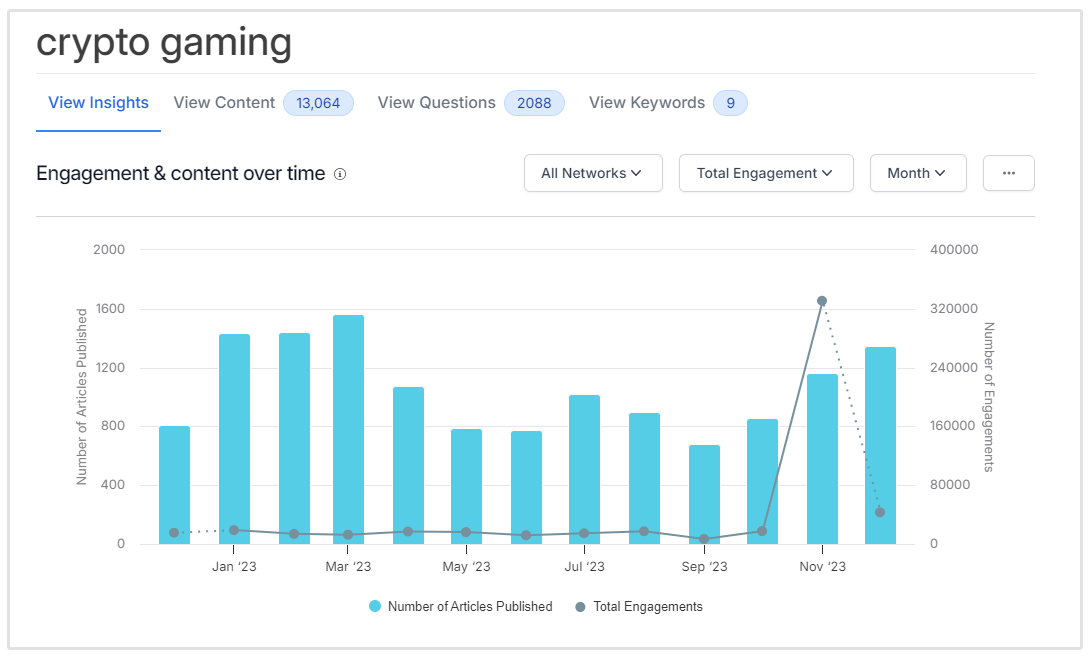
Attending Industry Events and Webinars
Participating in industry events, conferences, and webinars offers opportunities for networking and learning.
Engaging with experts in your field and hearing from thought leaders can provide valuable insights into emerging trends, challenges, and best practices.
Take notes and gather information that will inform your content creation process.
By truly understanding your market and industry, you can ensure that your content is relevant, engaging, and tailored to the specific needs of your audience. So, invest time in research, gather insights, and stay up-to-date with the latest developments in your field.
Comprehensive Keyword Research
Keyword research is paramount in the content research process. By targeting relevant keywords, you can optimize your content for search engines and attract targeted traffic.
This provides insights into the keywords that users are typing into Google when looking for information online.
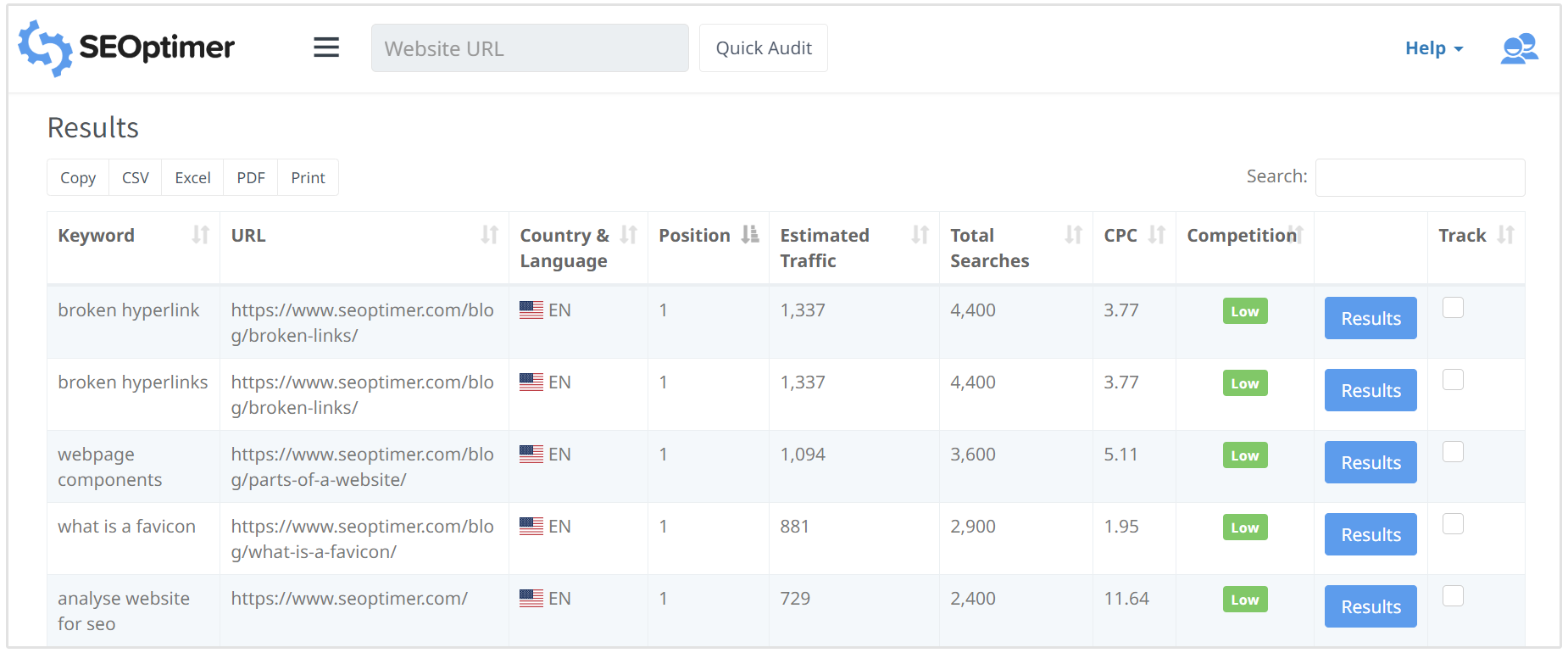
A critical aspect of the keyword research phase is to study your competitors. This can give you further ideas of what to include in the content brief that you give to your team of writers.
By conducting comprehensive keyword research, you can optimize your content for search engines, enhance its organic visibility, and attract a larger, targeted audience.
Remember to integrate relevant keywords naturally throughout your content, ensuring a seamless reading experience for your audience while maximizing the potential for search engine optimization (SEO) success.
Analyze Search Intent
Analyzing search intent is vital to creating highly relevant and valuable content that satisfies user needs and desires. By deciphering the intent behind a search query, you can tailor your content to provide the most appropriate and helpful information.
Here's a detailed exploration of how to effectively analyze search intent:
- Study SERP Features: When analyzing search intent, start by examining the search engine results pages (SERPs) for your target keyword. Look for any special SERP features like featured snippets, knowledge panels, or related questions. These features provide clues about the type of content Google considers most relevant for that query, helping you understand the intent behind it.

Image source: Go Up
- Identify Informational Intent: Informational intent focuses on obtaining knowledge or answers to specific questions. Common keywords indicating informational intent include "how to," "what is," "best practices," or questions starting with "why," "where," or "when."
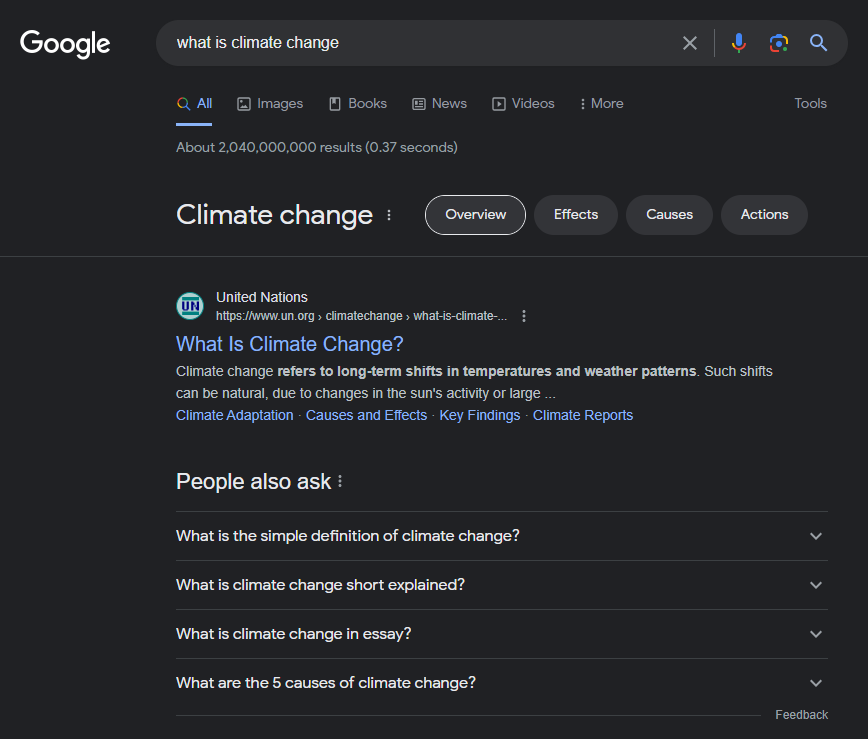
- Recognize Navigational Intent: Navigational intent occurs when users are searching for a specific website, brand, or resource. They already know the destination they want to reach. Incorporate brand-specific keywords and phrases in your content to cater to users with navigational intent and ensure they find the desired information easily.
- Target Transactional Intent: Transactional intent signifies users who are ready to make a purchase or engage in a specific action. Keywords indicating transactional intent often include terms like "buy," "discount," "deals," or "free trial." Align your content to address this intent by highlighting product features, benefits, and competitive advantages, persuading users to take the desired action.
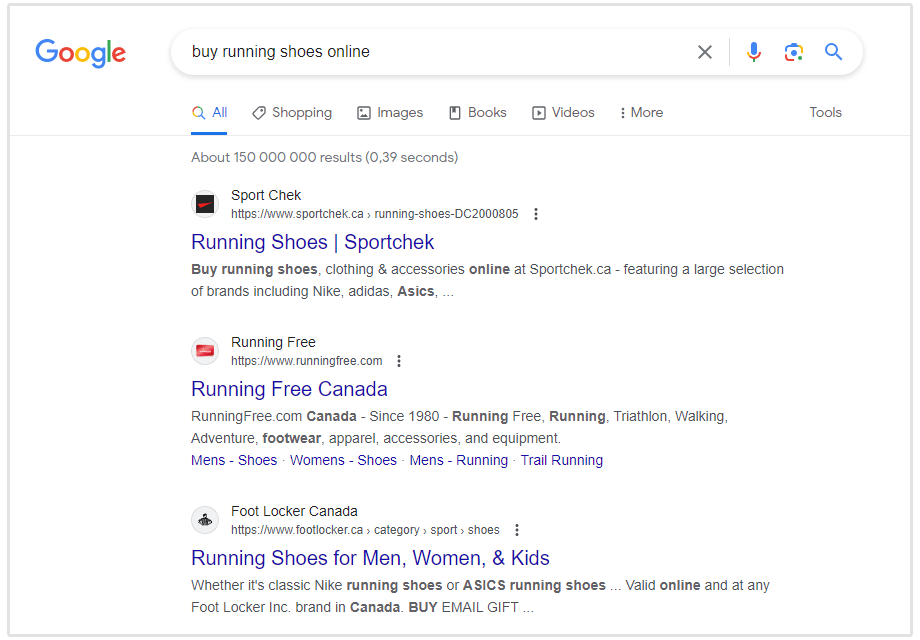
- Address Commercial Investigation Intent: Commercial investigation intent refers to users who are researching products or services with the intention of making a purchasing decision. Keywords indicating commercial investigation intent may contain terms like "reviews," "compare," or "best [product/service]."
Create content that offers in-depth product comparisons, unbiased reviews, or comprehensive buying guides to assist users in their research process.
By carefully analyzing search intent, you can create content that matches the needs and desires of your target audience. This approach ensures your content aligns with what users are searching for, increasing its relevance and value.
Tailoring your content to specific types of intent—informational, navigational, transactional, or commercial investigation—allows you to provide relevant information, guide users through their journey, and ultimately drive the desired actions.
Content Research Tips
Next, let's explore a range of content research tips that will empower you to create high-quality and impactful content that captivates your audience's attention.
Keep the End Goal in Mind
When embarking on content research, it's crucial to have a clear understanding of your end goal. The purpose of your content will shape the type and direction it takes.
- Are you aiming to drive organic traffic to your website?
- Do you want to provide detailed information about your products or services?
- Or perhaps you're seeking to increase your online visibility and brand awareness?
By defining your end goal, you can align your research efforts to create content that effectively fulfills those objectives.
Darren Graham, Director of 408 Media Group, a digital agency offering a range of marketing services, suggests that this is the first thing you do when you begin researching content.
Before you start researching, clearly define your goals for the content you want to create. Who is your target audience? What do you want them to learn or do after reading your content?
Get Insights from Experts
When it comes to creating high-value content, tapping into the knowledge and expertise of industry experts can be a game-changer.
Incorporating insights from experts not only adds credibility and authority to your content but also enhances its value by providing unique perspectives and valuable information.
Don't just stick to one source. Mix it up and gather info from all over to get the full picture.
Dimitriy Shelepin, Miromind
Industry experts bring their own experiences and insights to the table, offering fresh perspectives that can greatly enrich your content. This helps you provide unique and valuable information to your audience, setting your content apart from others.
Experts are up-to-date with the latest trends, research, and developments in their fields. By incorporating their insights, you can ensure that your content remains current, relevant, and valuable to your target audience.
You can find experts for your content research in different places. This includes platforms like Twitter, Quora, and LinkedIn. You can also get direct quotes from experts on HARO.
Check Forums for Ideas
Forums and sites like Reddit can be a goldmine of information and inspiration when doing content research.

Checking forums not only helps you gather further information on the topic you're researching but also allows you to discover frequently asked questions (FAQs) related to your subject matter.
Check Competitor’s Content
Analyzing your competitor's content can be a valuable strategy to gain insights, understand market trends, and shape your own content strategy.
By examining what your competitors are doing, you can get a good idea of what to include in your own content.
Additionally, studying the top-ranking articles in your industry allows you to understand what Google favors, as these articles have already achieved high rankings.
If your competitor's content is performing well, it's worth examining their strategies and tactics.
When analyzing the top-ranking articles in your industry, pay attention to their structure, word count, use of keywords, meta tags, and other on-page optimization factors.
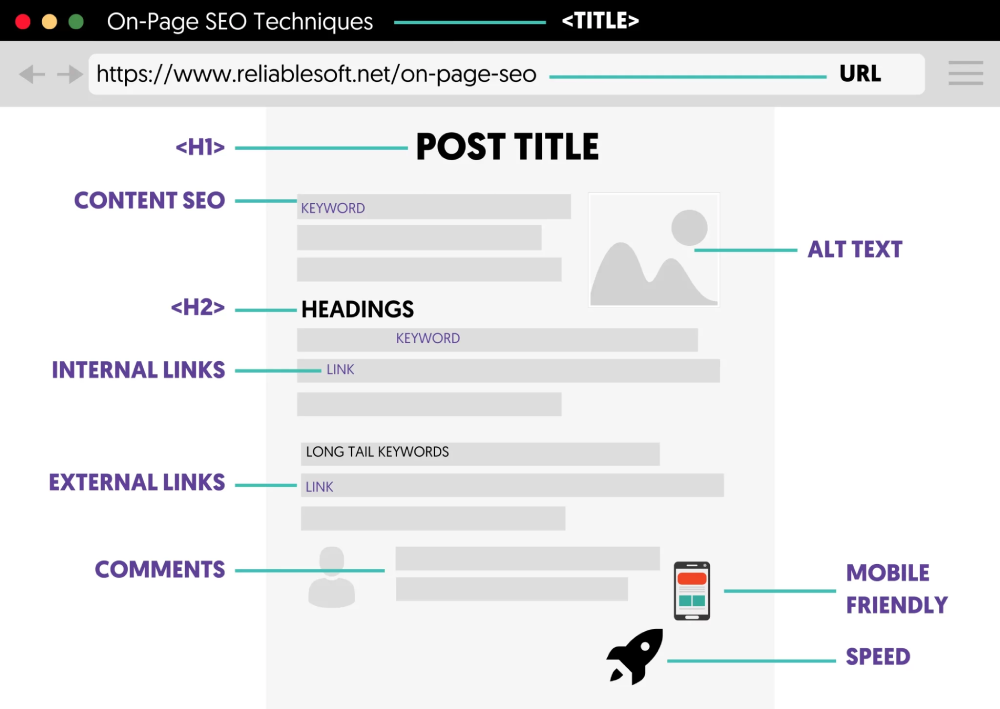 Image source: Reliablesoft
Image source: Reliablesoft
Janis Thies, founder of SEOlutions, a Germany-based digital agency, recommends that marketers should at least look at the top 5 ranking pages to better understand the competitive landscape.
Studying the top-ranking pages for the target keywords reveals what works. We look at their heading structure, meta data, keyword density, URL structure and user engagement metrics to inform our strategies.
Studying the top-ranking articles also reveals potential content gaps that you could fill with more in-depth, up-to-date, or comprehensive information.
Remember, while it's important to analyze competitor's content, it's equally crucial to maintain your unique brand voice and differentiate yourself in the market.
Use competitor insights as inspiration and guidance, but always strive to provide unique value and cater to the specific needs and preferences of your target audience.
Try to Find Long-Tail Keywords
Long-tail keywords are longer and more specific keyword phrases that target a narrower audience but have less competition.
These keywords often indicate strong user intent and can drive highly targeted traffic to your content. Identify long-tail keywords related to your topic to capture niche audiences and generate qualified leads.
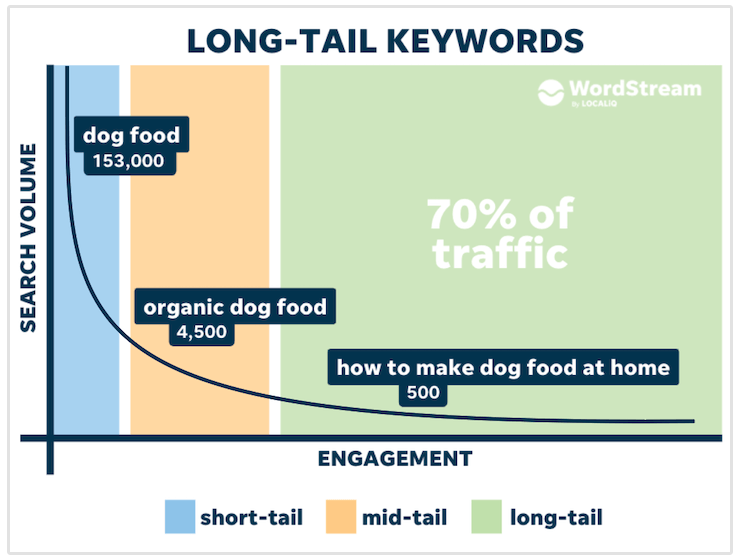
Image source: WordStream
Check User-Generated Keywords
User-generated keywords, such as those found in search suggestions or question-based queries, can offer valuable insights into what users are specifically looking for. These include Google's People Also Ask box and People Also Search For.
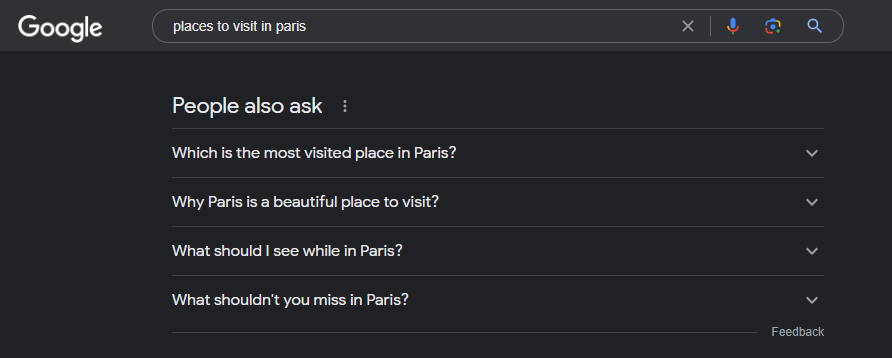
Look out for these keywords or search phrases when doing content research to find common queries that you can provide solutions to.
Another place to look for these keywords is in your customer support interactions.
Customer support queries are a treasure trove for creating content that speaks to their needs and concerns.
Jayden Ooi, NightOwl
Conclusion
By leveraging these strategies, you can do effective content research that forms the foundation for creating informative, persuasive, and engaging content that captivates your audience, establishes your brand as a trusted authority, and drives reader action.
Do you have any other content research tips that we might have missed? Tweet to us @seoptimer.















